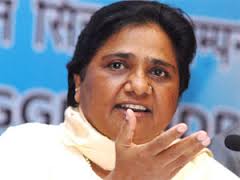 Lucknow, July 24: The Uttar Pradesh Cabinet on Monday approved a proposal to rename eight districts whose names were changed during former chief minister Mayawati's tenure. At a meeting chaired by chief minister Akhilesh Yadav, the state cabinet said Chhatrapati Shahuji Maharaj Nagar and Ramabai Nagar will revert to their original names, Amethi and Kanpur Dehat. The decision, the government said, was taken following requests from residents and people's representatives who said they were facing difficulties in identifying their districts both within and outside the state.
Lucknow, July 24: The Uttar Pradesh Cabinet on Monday approved a proposal to rename eight districts whose names were changed during former chief minister Mayawati's tenure. At a meeting chaired by chief minister Akhilesh Yadav, the state cabinet said Chhatrapati Shahuji Maharaj Nagar and Ramabai Nagar will revert to their original names, Amethi and Kanpur Dehat. The decision, the government said, was taken following requests from residents and people's representatives who said they were facing difficulties in identifying their districts both within and outside the state.Restoring the original names of existing districts, in Monday's cabinet, the government also approved new names for the districts that were created during the BSP regime. Bheem Nagar, Prabudh Nagar and Pancheel Nagar, three districts that were created in September 2011, the cabinet said, would now be renamed as Sambhal, Shamli and Hapur, respectively. In a similar vein, while Kanshiram Nagar will now be Kasganj, Mahamaya Nagar and J P Nagar have also been restored to their original names -- Hathras and Amroha, respectively.
This is the third time the Samajwadi Party government has revoked BSP decisions. Earlier, the SP government also scrapped social welfare schemes named after Dalit icons, revoked quota system in promotions and renamed public utility services and environment awards that were constituted in the name of BSP founder Kanshi Ram.
Reacting sharply to the state government's decision, former CM Mayawati said "the act of naming districts after Dalit icons was meant to inspire people and usher the state towards social change". Down, but hardly out, the BSP supremo also warned the SP that it would have to pay, eventually, for resorting to "cheap popularity'' tactics.
In a landmark decision, the state cabinet also decided to allot up to 250 sq meters of free land to all persons displaced by floods in the state. Saying that land would be allotted on priority basis -- to persons of Scheduled Castes and tribes, other backward castes, farmers and rural craftspeople from the general category but living below the poverty line -- the government also added that the possession of land would be revoked if beneficiaries failed to construct houses on the land, or maintain it in keeping with the state government's directions.
Times View
In itself, restoring names by which different places have been known for a long time might seem like a good idea. However, in this particular case it is difficult to escape the conclusion that the move is driven more by a desire to undo all the previous regime did than by any considerations of public convenience. In general, the practice of repeatedly changing names of cities, districts, streets and so on is best avoided. Not only does it trigger a chain reaction of constant renaming, as in this case, it is a nuisance to the public at large which is suddenly confronted with a name it cannot associate with.





Comments
Add new comment